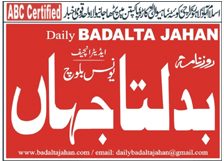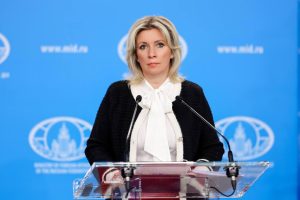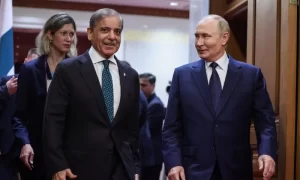
Steel oil pipes from refinery.
اسی طرح پیٹرول جس کی قیمت 253.63 روپے فی لیٹر ہے اب 258.43 روپے میں دستیاب ہوگی۔ پچھلے تخمینوں میں تجویز کیا گیا تھا کہ بین الاقوامی مارکیٹ کی قیمتوں میں اضافے کی وجہ سے، اگلے پندرہ دن تک پیٹرول اور ڈیزل کی قیمتوں میں بالترتیب 1 روپے اور 5 روپے فی لیٹر کا اضافہ ہوگا۔ بلوچستان میں ایندھن کا بحران شدت اختیار کر گیا۔ دریں اثنا، اسرائیل اور ایران کے بڑھتے ہوئے تنازع کے درمیان بلوچستان میں ایندھن کے بحران نے سنگین رخ اختیار کر لیا ہے، کیونکہ سرحد کے ذریعے ایرانی تیل کی سپلائی بری طرح متاثر ہوئی ہے، جس کے نتیجے میں بڑی تعداد میں پیٹرول پمپس بند ہو گئے ہیں۔ ایران کے ساتھ بلوچستان کے سرحدی اضلاع بشمول تربت، گوادر، پنجگور، چاغی، واشوک اور مشکیل سب سے زیادہ متاثر ہیں، کیونکہ انہیں نہ صرف ایرانی تیل کی سپلائی کی معطلی کا سامنا تھا بلکہ خوراک کی کمی کا بھی سامنا تھا، کیونکہ کھانے پینے کی زیادہ تر سپلائی بھی ایران سے آتی ہے۔ مکران، رخشان اور چاغی کے علاقوں سے ایرانی اسمگل شدہ تیل کی سپلائی معطل ہونے کی وجہ سے تقریباً 60 سے 70 فیصد پٹرول پمپ بند ہیں۔ اسمگل شدہ ایرانی پیٹرول اور ڈیزل فروخت کرنے والے پیٹرول پمپس کو ضلعی انتظامیہ نے گزشتہ ہفتے پہلے ہی بند کردیا تھا، جس سے کوئٹہ اور دیگر اضلاع میں شہریوں کی مشکلات میں بھی اضافہ ہوا تھا۔
Those involved in the Iranian petrol business had increased prices, selling petrol for Rs280 to 300 per litre in the black market, while the government had fixed the local petrol price at Rs254 per litre.
The petrol supply from Karachi was also affected due to the road blockade between Quetta and the port city at different points.
‘No fuel shortage’
However, the Balochistan government claimed that there was no fuel shortage in the province, as most petrol pumps were open in the provincial capital.
In a statement, provincial government spokesperson Shahid Rind refuted the impression that the province was facing a fuel shortage.
He said that petrol stations selling Iranian oil are safety hazards, citing 28 fuel-related accidents across Quetta in the past month, including incidents on Airport Road and in Hazar Ganji area.
“These so-called shortages are being exaggerated by those who want to lift the ban on smuggled Iranian fuel,” Rind said, adding that strict action is being taken to ensure the supply of legal petrol through registered pumps. Petrol stations found involved in hoarding or refusing service will face immediate legal consequences, he warned.
Global oil price volatility
The escalating conflict between Israel and Iran has raised significant concerns in global markets, particularly in the energy sector, due to both countries’ strategic positions in the Middle East, a region critical to the global oil supply chain.
Investors were on edge ahead of markets reopening late on Sunday, gripped by anxiety over the escalating threat of a sweeping conflict in the Middle East and nationwide protests against President Donald Trump, according to Reuters.
Oil prices rose by 7pc on Friday, as Israel and Iran traded strikes, and investors will be watching closely to see how prices react when markets open today (Monday).
Israel’s strikes on Iran’s oil and gas industry lifted oil prices and prompted a rush into gold and the dollar, which resumed its role as a safe-haven asset for the first time in months.
Oil prices at close to six-month highs could pose a risk to the inflation outlook, as central banks around the world grapple with the impact on prices from Trump’s trade tariffs and the effect on economic growth.
Energy experts said if hostilities remain limited to tit-for-tat strikes without affecting shipping lanes or oil fields then oil prices may see short-term volatility, but stabilise quickly later.
In other case, if the conflict escalates, impacting the Strait of Hormuz or drags in other countries, the oil prices could surge above $100 per barrel, they feared.





